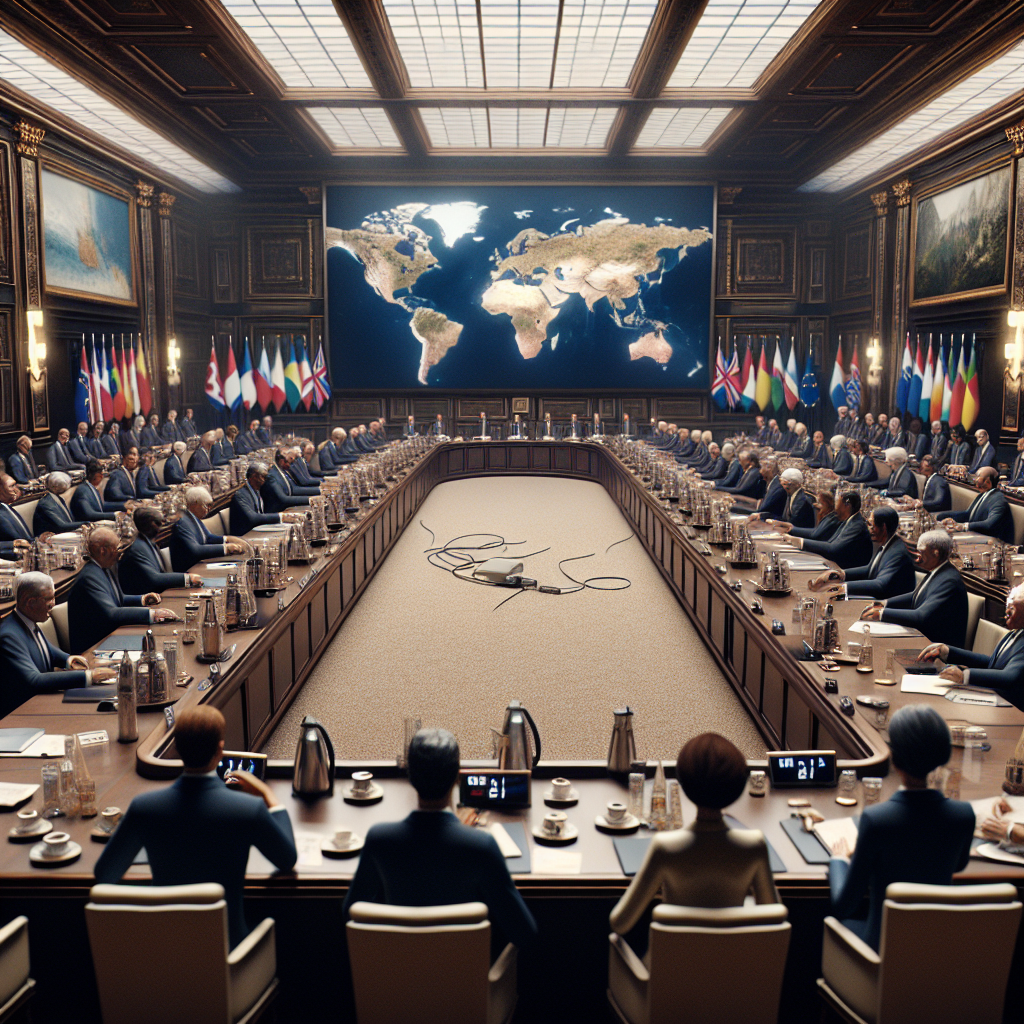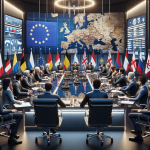Listen to this post: Russia Sanctions: EU Leaders Stand Firm Amid Conflict
Russia Sanctions: EU Leaders Stand Firm Amid Conflict
Summary
In response to ongoing tensions between Russia and Ukraine, the European Union is once again demonstrating its resolve by maintaining a united front on sanctions against Moscow. At a recent summit, EU leaders affirmed their unwavering support for Ukraine and agreed unanimously to extend and enforce existing sanctions, citing Russia’s continued aggression and failure to comply with international law.
The summit, held amid deepening geopolitical instability, focused heavily on aligning the EU’s foreign policy with its values and strategic interests. Sanctions targeting Russian energy exports, financial sectors, and high-ranking officials have been a cornerstone of the EU’s approach since the 2022 escalation of the Ukraine conflict.
European Council President Charles Michel emphasized the importance of unity, warning that any fracture in the EU bloc could embolden Russia. Meanwhile, European Commission President Ursula von der Leyen reaffirmed the EU’s commitment to supporting Ukraine “for as long as it takes.”
Crucially, the EU has extended sanctions that were set to expire, particularly those restricting oil imports and financial transactions with key Russian institutions. Member states also discussed additional measures, including tougher enforcement mechanisms and the potential use of frozen Russian assets to fund Ukraine’s reconstruction.
While economic implications remain a concern—particularly for energy-dependent countries like Germany and Hungary—the consensus among EU members suggests that political solidarity outweighs short-term economic challenges for now.
Analysis
The European Union’s reaffirmation of sanctions against Russia underscores a rare moment of strategic coherence across its diverse member states. This situation provides valuable insights into the EU’s evolving geopolitical posture and its role in the global power structure.
In recent years, Europe has increasingly positioned itself as a key defender of international law and democratic norms. The latest decision to maintain sanctions signals not just support for Ukraine, but also a broader commitment to countering authoritarian influence globally.
- International Law Enforcement: Sanctions serve as a non-military means of holding Russia accountable for breaches of international law.
- Economic Strategy: By restricting Russian energy exports, the EU aims to diminish the Kremlin’s primary revenue stream without mobilizing troops.
- Unified Front: The EU’s unity is itself a geopolitical tool, reinforcing its credibility on the world stage.
Sanctions are often criticized for being ineffective or slow-acting, but financial data suggests they have eroded key sectors of Russia’s economy. Goldman Sachs recently reported a withdrawal of foreign direct investment from Russia at levels not seen since the 1990s.
Sanctions are not merely punitive; they are a signal to the international community that aggression has costs.
Josep Borrell, EU High Representative for Foreign Affairs
However, internal tensions still exist. Some Eastern European states push for more aggressive sanctions, while others fear economic repercussions. The appointment of sanctions coordinators and improved enforcement tools represent steps toward resolving these divisions.
Looking forward, the EU may explore:
- Using frozen Russian central bank assets for Ukraine’s post-war reconstruction
- Extending sanctions to more dual-use technologies and supply chain networks
- Building closer sanction alignment with NATO and G7 partners
What’s clear is this: the endurance of EU unity will be pivotal both for Europe’s strategic credibility and for the fortunes of Ukraine in this ongoing conflict.













